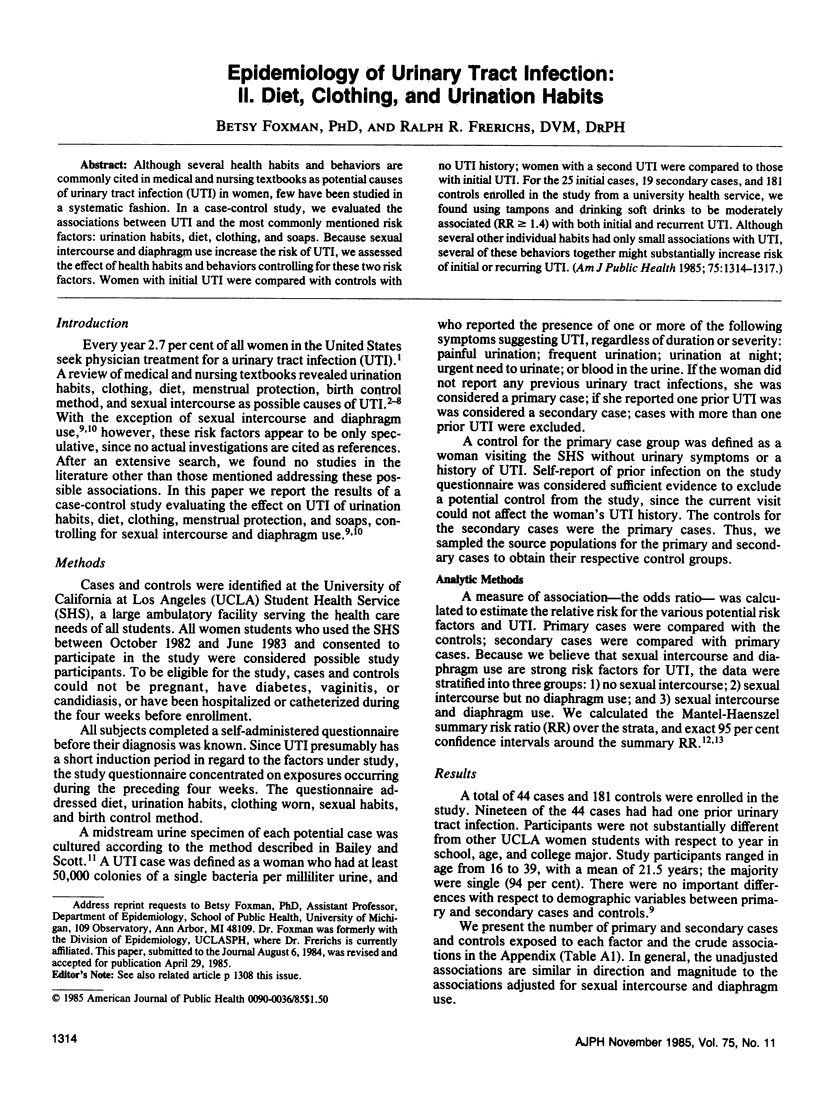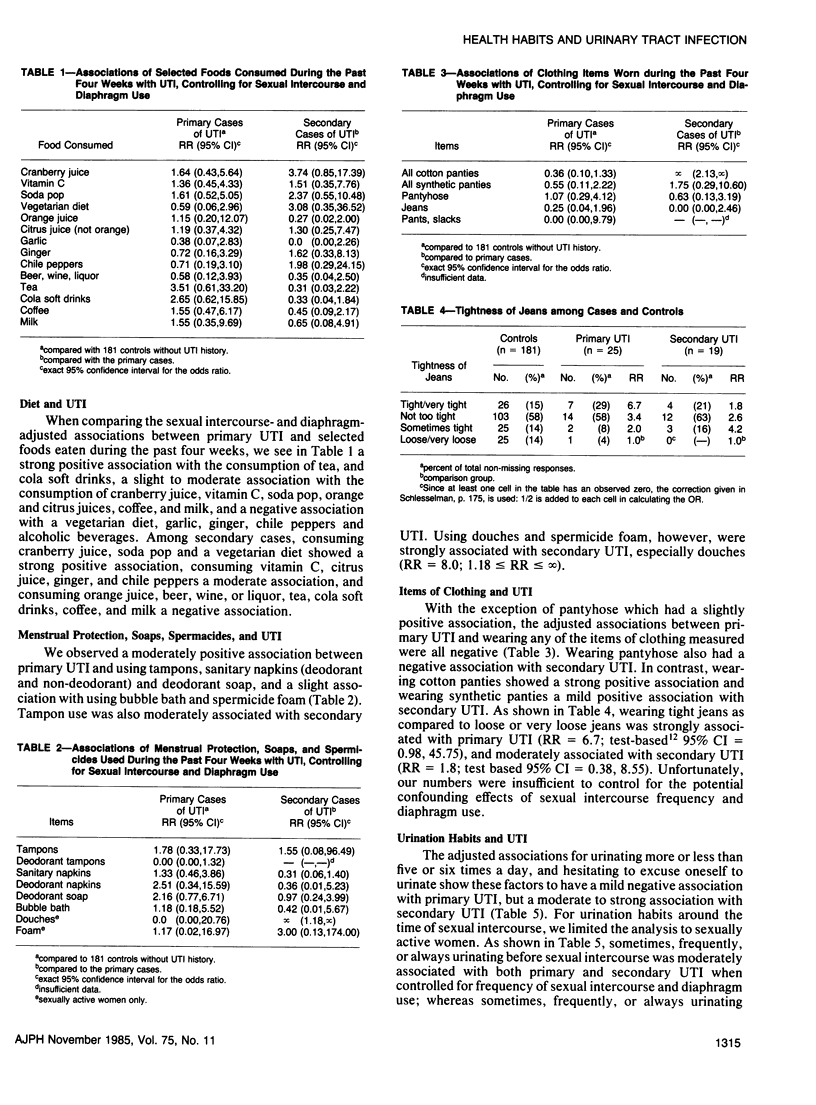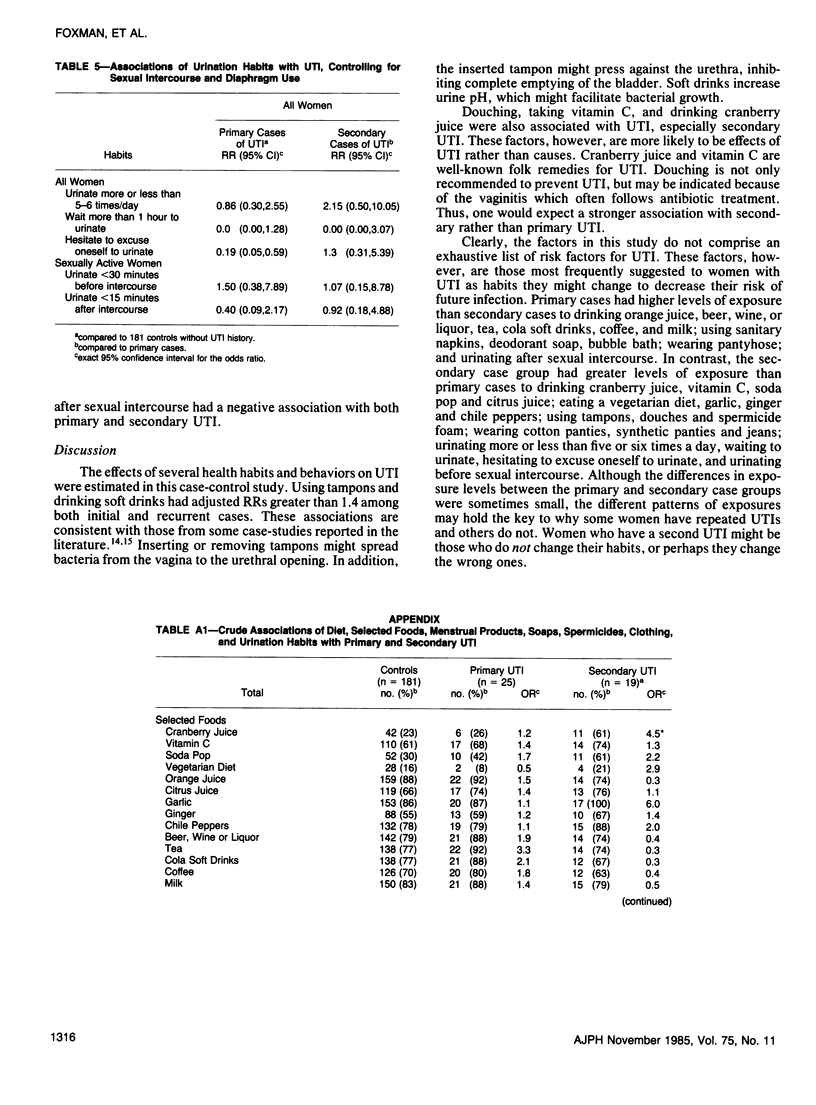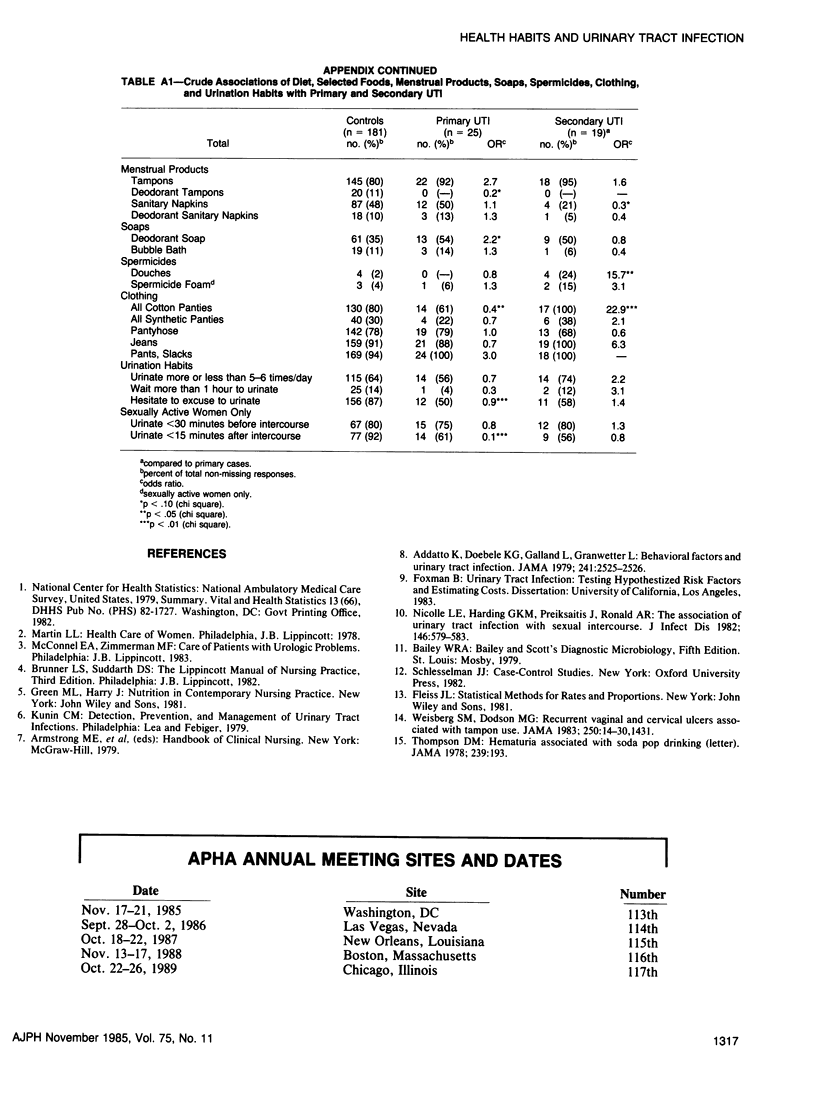Abstract
Although several health habits and behaviors are commonly cited in medical and nursing textbooks as potential causes of urinary tract infection (UTI) in women, few have been studied in a systematic fashion. In a case-control study, we evaluated the associations between UTI and the most commonly mentioned risk factors: urination habits, diet, clothing, and soaps. Because sexual intercourse and diaphragm use increase the risk of UTI, we assessed the effect of health habits and behaviors controlling for these two risk factors. Women with initial UTI were compared with controls with no UTI history; women with a second UTI were compared to those with initial UTI. For the 25 initial cases, 19 secondary cases, and 181 controls enrolled in the study from a university health service, we found using tampons and drinking soft drinks to be moderately associated (RR greater than or equal to 1.4) with both initial and recurrent UTI. Although several other individual habits had only small associations with UTI, several of these behaviors together might substantially increase risk of initial or recurring UTI.
Full text
PDF



Selected References
These references are in PubMed. This may not be the complete list of references from this article.
- Adatto K., Doebele K. G., Galland L., Granowetter L. Behavioral factors and urinary tract infection. JAMA. 1979 Jun 8;241(23):2525–2526. [PubMed] [Google Scholar]
- Nicolle L. E., Harding G. K., Preiksaitis J., Ronald A. R. The association of urinary tract infection with sexual intercourse. J Infect Dis. 1982 Nov;146(5):579–583. doi: 10.1093/infdis/146.5.579. [DOI] [PubMed] [Google Scholar]
- Thompson D. M. Hematuria associated with soda pop drinking. JAMA. 1978 Jan 16;239(3):193–193. [PubMed] [Google Scholar]
- Weissberg S. M., Dodson M. G. Recurrent vaginal and cervical ulcers associated with tampon use. JAMA. 1983 Sep 16;250(11):1430–1431. [PubMed] [Google Scholar]



